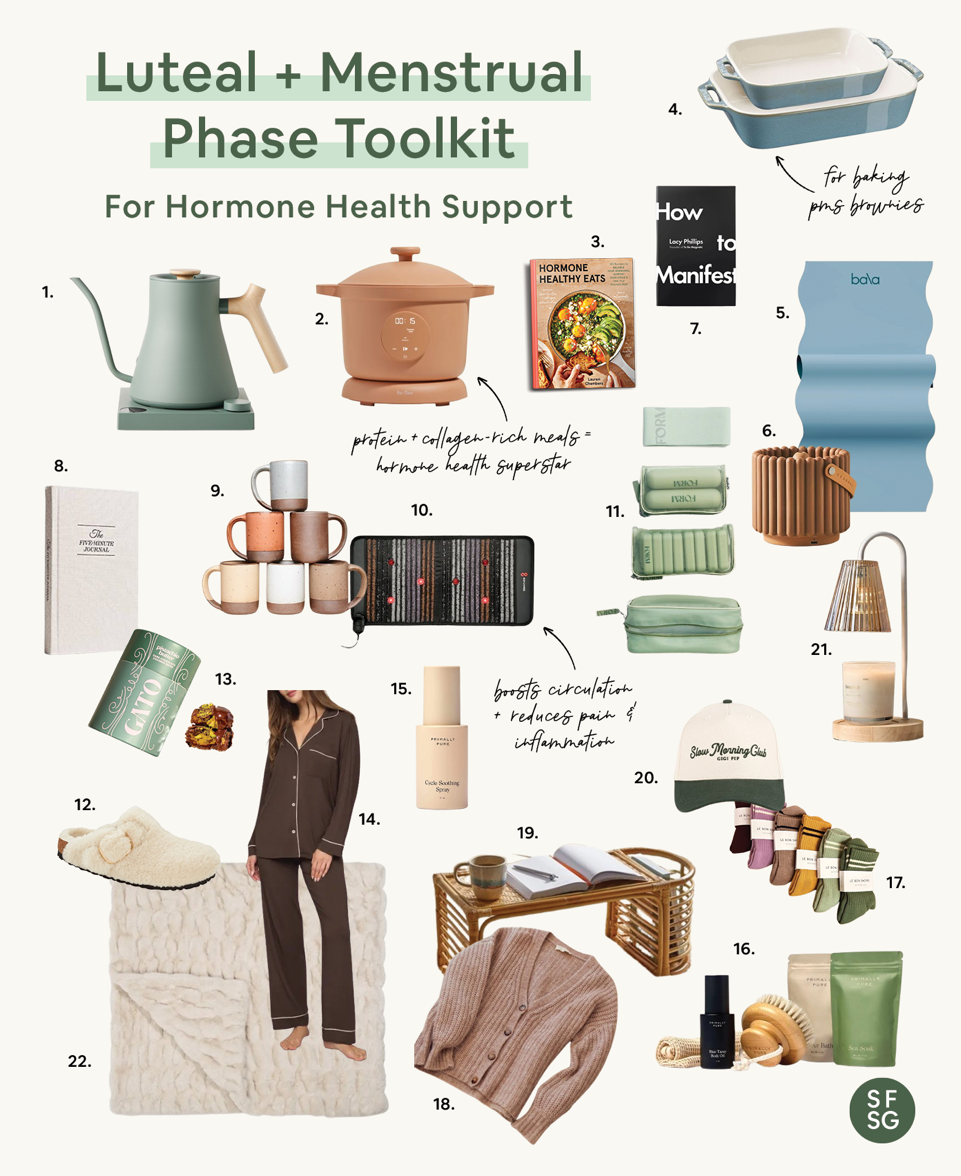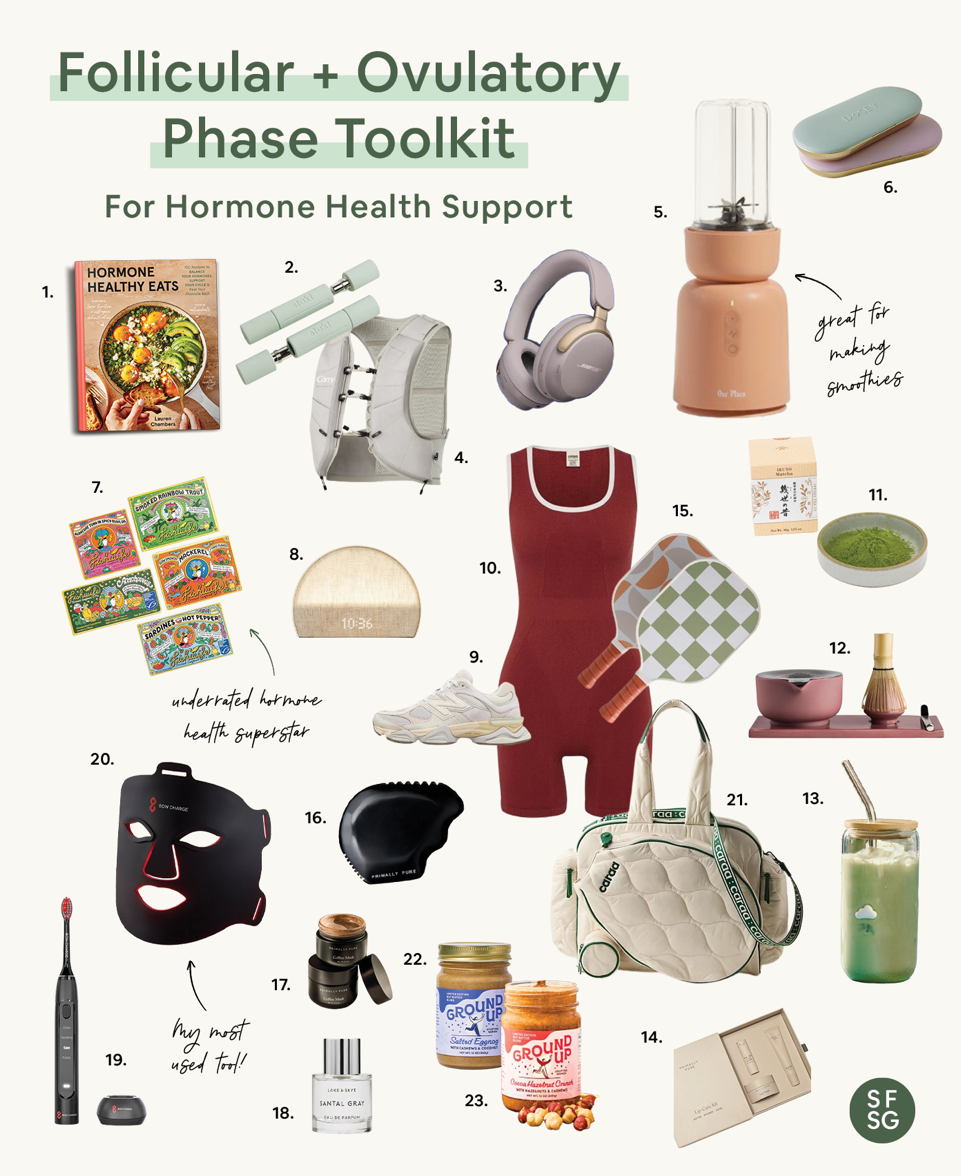recipes
lifestyle
wellness
motherhood
mindset
About
E-Books
Blog
Freebies
partnerships
hi, i'm lauren!
hey there!
I’m on a hot mission to help you balance your hormones & live your best life.
categories
Home
Quiz
Get In Touch
The Course
search:
Cookbook
Hormone-Balancing Tips for Your Man — How to Boost Male Fertility + Testosterone
Jan 15, 2020
Recipe key
GF
VG
P
Vegan
Gluten Free
Paleo
DF
Dairy-Free
download now
Join Hormone Healthy Eats!
Become a SFNSG insider to get my monthly Substack, Hormone Healthy Eats! Packed with the latest hormone-healthy recipes
+ tips.
jump to recipe >
Okay ladies, I don’t know about you but I feel like there is a ton of information and targeted marketing out there regarding female fertility, but not so much when it comes to our male counterparts.
Which is kind of strange, because optimal male fertility is just as important as female in order to conceive.
I mean, I get women have to do the bulk of the work (hello pregnancy, birth + nursing), but our men are a crucial factor to getting pregnant, and they should have resources too!
So, I wanted to create something helpful for the men in your life, in the case you’re looking to conceive in the future. Feel free to pass along this link their way, or bookmark and discuss whenever the topic becomes relevant.
And even if you and your man are NOT looking to get pregnant, hormone balance is still just as important for men as for women, so if your guy is experiencing symptoms like lack of energy or libido, stubborn weight gain, stress or sleep issues, anxiety or depression, etc. I encourage you to read!
WHY TESTOSTERONE MATTERS
It may sound shocking, but men have all of the same hormones as women, most are just in much different doses and operate on a much more linear nature (while women’s are ever-fluctuating and cyclical).
One of the more dominant hormones in men is testosterone, an androgen and primary male sex hormone that plays a key role in the development of male reproductive tissues such as testes and prostate, as well as stimulates the development of male characteristics such as increased muscle/bone mass and body hair growth.
Androgens are made from their precursor, cholesterol, by converting it into pregnenolone, DHES and androstenedione, which are then converted into testosterone, estradiol, DHEA and DHT. This may sound like a mouthful but the most important nugget to takeaway from this is that cholesterol is a precursor to male sex hormones, and in order to have high quality cholesterol it’s important for men to eat plenty of high quality fats.
Another key takeaway here is that testosterone is a reproductive hormone and adequate levels are vital for a healthy libido and sperm levels, making it a key component of male fertility.
COMMON CAUSES OF MALE HORMONE IMBALANCE + HOW TO BOOST TESTOSTERONE + FERTILITY NATURALLY
+ STRESS
You might have guessed it, but just like with female hormone imbalances, male hormones are majorly affected by stress. Specifically, the consistent release of stress hormone cortisol negatively impacts the male reproductive hormones.
When cortisol is produced in response to a stressor, it tells the pituitary and hypothalamus to stop secreting gonadotropin-releasing hormone. This, in turn, will influence a decrease in production of FSH and LH, which are crucial for the synthesis of testosterone and sperm production.
Another side effect of stress is the depletion of pregnenolone, a precursor for cholesterol that’s needed for the synthesis of sex hormones. During times of chronic stress, cortisol steals pregnenolone from cholesterol to make more cortisol – which means less is available to make sex hormones. So, naturally, if your body is in survival mode, having a child isn’t part of the agenda (this goes for women as well). The result? Less circulating testosterone and decreased sperm production.
Thus one of the best things men can do for their hormones and fertility is work on managing stress (see specific tips below).
Action Step:
When your man works on cultivating a peaceful mind, he’s working on strengthening the tone of his vagus nerve. The vagus nerve originates in the medulla – the last part of the brainstem – and travels through the body to communicate to various organs, including the liver, heart, lungs, stomach, and intestines. The vagus nerve regulates the “rest and digest” nervous system. Tapping into and stimulating this nerve will recharge his battery and help restore, repair, and re-create homeostasis in the body.
Encourage him to try whatever feels good and empowers him to relax, including meditation or deep breathing, exercise, getting out in nature, adventure (my husband loves adrenaline pumping action), hanging out with the guys, or taking a break from his electronic devices to be present in the moment.
+ TOXINS
Action Step:
While there’s no possible way to avoid total exposure, the good news is there are plenty of simple ways to reduce it! Try downloading the Think Dirty app and looking up the toxic rating of some of your household products (cleaning and laundry supplies, deodorant and bath/shower items, etc.), making it a goal to replace those with high levels overtime. I also encourage you to swap any plastic containers for glass and plastic water bottles with a sustainable, reusable one in order to minimize exposure to endocrine-disrupting BPAs.
+ DIET & WEIGHT GAIN
An abundance of processed sugars, carbohydrates and fast food impacts insulin sensitivity levels and increases inflammatory markers in the body. These sugar spikes negatively impact testosterone synthesis and production, with numerous studies showing diabetic men having lower levels of testosterone.
The consistent intake of inflammatory foods can also cause weight gain, which increases adipose tissue that converts testosterone to estrogen via aromatase, lowering testosterone levels. Obesity is also correlated with low testosterone levels as a result.
Action Step:
Diet and exercise are among the best remedies for regulating hormones, losing weight and thus optimizing sperm + fertility health. Encourage your guy to participate in any physical activity he likes (sex included) and try cooking nourishing meals together balanced with quality protein, fat and fiber, to help level out insulin levels and boost sexual health and function (for both of you).
+ EXERCISE
As previously mentioned, exercise is highly effective at working to balance male hormone levels, but studies have show HIIT (high intensity interval training) to be especially beneficial at boosting testosterone levels and protein synthesis, burning fat and losing weight, as well as regulating blood sugar levels.
Action Step:
Working HIIT into a weekly workout routine is key. There are tons of gyms out there offering this type of workout (think crossfit, Orange Theory, Barry’s Bootcamp, etc.) as well as plenty of youtube/online workouts available.
+ SLEEP
While you sleep, your body is resting and repairing. Testosterone levels and sperm production are most active during sleep. One study showed that getting as little as 5 hours of sleep can reduce testosterone levels by 10-15% in young healthy men. So, getting at least 6-8 hours of good quality sleep is important in androgen synthesis and function.
Action Step:
Try getting off electronics (phone, computer, etc.) at least 1-2 hours prior to bedtime in order to limit your exposure to blue light rays that disrupt circadian rhythm, increase cortisol levels (your stress hormone) and suppress melatonin levels (your sleep hormone). You can also encourage your guy to develop a wind down routine and incorporate some relaxing nighttime rituals like reading, foam rolling/stretching, or taking a hot shower.
+ DRUGS + ALCOHOL
Studies have shown that alcohol can adversely affect the Leydig cells in the testes, which produce and secrete the hormone testosterone. Heavy alcohol consumption results in reduced testosterone levels in the blood. Depending on the type of drug consumed, it can block production of testosterone or decrease erection by diverting blood flow from the penis. Consistent use of marijuana has been shown to reduce testosterone and sperm quality.
Action Step:
Try limiting consistent drug and alcohol use (which is obviously easier said than done if this is a part of your regular routine). One of the most effective ways to develop a new habit is by “replacing” the old with something new that’s still enjoyable. What are other fun activities you could swap for going to a bar (planning a hike, seeing a movie, grabbing a coffee, etc.)? Or could you swap alcohol during the weeknight for some sort of mocktail (our go-to is sparkling topo chico with fresh lime or mint)? Figure out ways to be creative and have fun together, sans drugs + alcohol.
+ SUPPLEMENTS
While not a common cause of male hormone imbalance, incorporating supplements can be very effective at promoting hormone balance and boosting male fertility. Below are a few of my recommendations, although I highly encourage your guy to see his medical provider before taking (especially if currently on any medications).
Action Step:
+ Saw Palmetto — An adaptogenic herb that’s supportive of the endocrine system, especially in men. While it’s mostly known for its beneficial effect on the prostate, it also helps to improve sperm count. Saw palmetto is known to support men who are feeling stressed, have poor immune function, and have been engaging in poor lifestyle and dietary habits. It’s anti-androgenic and anti-inflammatory. In general, it can help normalize male reproductive function.
+ SPERM OR EJACULATION ABNORMALITIES
These can include a genetic condition, infection after puberty, hernia repairs, a blockage caused by an infection, wearing restrictive or tight underwear, injury to the groin area, history of STD’s, use of certain types of medications, premature or retrograde ejaculation, erection dysfunction, and complications from radiation or surgery.
Action Step:
If one of these applies I encourage your man to meet with a fertility specialist to determine best next steps.
BOTTOMLINE:
While some of this information might seem overwhelming, the important takeaway here is that both men and women have plenty of options and simple action steps we can take to boost our hormone function and overall health. Try starting with one area each week or month and working on that alone (i.e. maybe it’s incorporating exercise into your routine or replacing your cleaning supplies with a non-toxic option) until it becomes a part of your regular routine and lifestyle. Once you have it down, move onto the next. It doesn’t have to be an all or nothing approach, just take it slowly, consistently and do your best.
If you’re looking for additional support, recipes or resources I highly recommend checking out my Fertility Boosting Fundamentals Guide.

If you loved that...

01.

02.

03.

04.

05.
hey!
Keep Browsing
Site
Keep Browsing
Site
the
about
e-books
blog
downloads
quiz
Welcome friend, I'm lauren.
I’m honored to support you on your journey to optimal hormone health + happiness. Thanks for being here babe.


